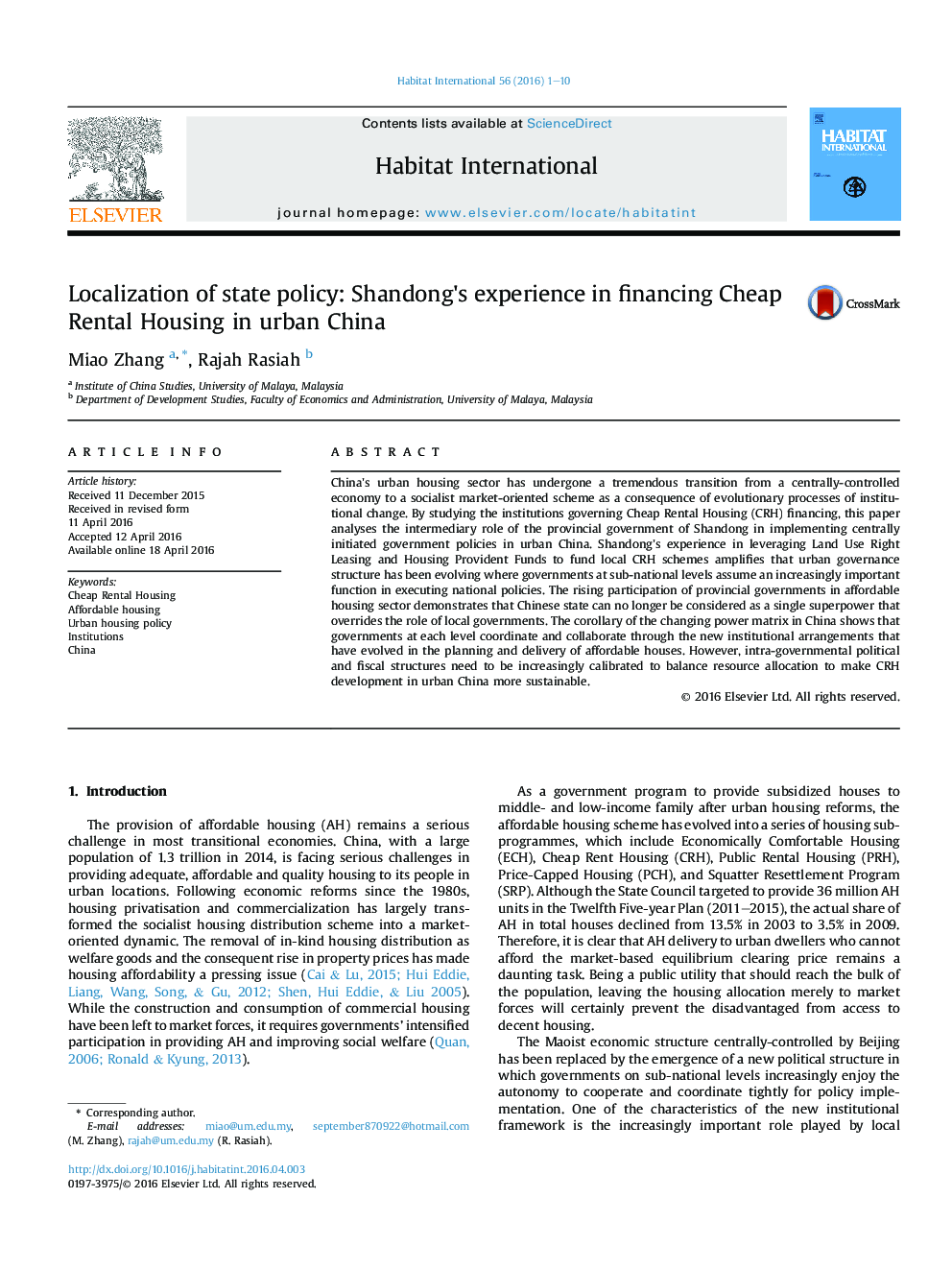| Article ID | Journal | Published Year | Pages | File Type |
|---|---|---|---|---|
| 1047691 | Habitat International | 2016 | 10 Pages |
•The Chinese state is not a single superstructure.•Central government initiates while provincial governments intermediate affordable housing policy.•A blend of institutions, both formal and informal have shaped the functions of provincial governments.•Uneven housing delivery, inter alia, is caused by differences in local policies.•Evidence challenges misperceptions about China as a single extractive complex.
China's urban housing sector has undergone a tremendous transition from a centrally-controlled economy to a socialist market-oriented scheme as a consequence of evolutionary processes of institutional change. By studying the institutions governing Cheap Rental Housing (CRH) financing, this paper analyses the intermediary role of the provincial government of Shandong in implementing centrally initiated government policies in urban China. Shandong's experience in leveraging Land Use Right Leasing and Housing Provident Funds to fund local CRH schemes amplifies that urban governance structure has been evolving where governments at sub-national levels assume an increasingly important function in executing national policies. The rising participation of provincial governments in affordable housing sector demonstrates that Chinese state can no longer be considered as a single superpower that overrides the role of local governments. The corollary of the changing power matrix in China shows that governments at each level coordinate and collaborate through the new institutional arrangements that have evolved in the planning and delivery of affordable houses. However, intra-governmental political and fiscal structures need to be increasingly calibrated to balance resource allocation to make CRH development in urban China more sustainable.
